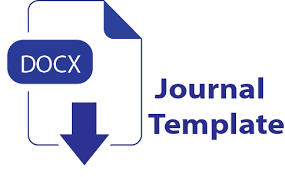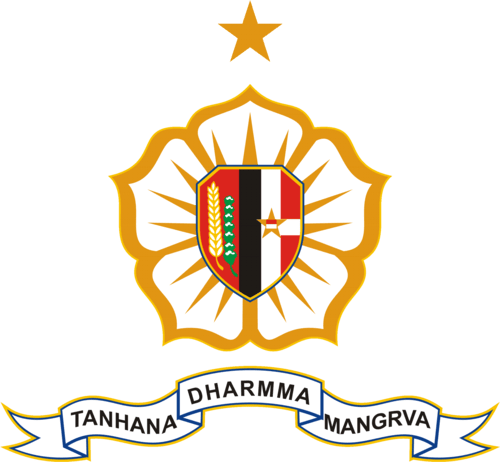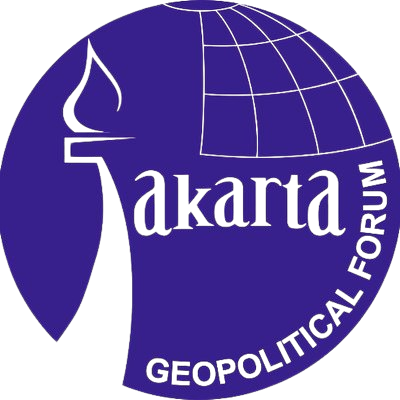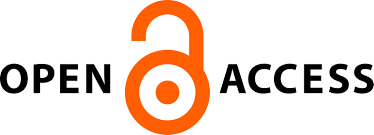MIDDLE POWER GEOPOLITICAL POSITION AND MARITIME WHOLE OF GOVERNMENT APPROACH IN THE INDO-PACIFIC REGION
DOI:
https://doi.org/10.55960/jgf.v8i1.270Keywords:
Indo-Pacific, middle powers, strategic coordination, whole-of-nationAbstract
Abstract.
The study analyses how middle powers, particularly Australia and Indonesia, can strengthen their strategic influence through the adoption of a whole-of-nation approach to foreign and security policy. In the context of increasingly complex and interconnected global challenges, including climate change, transnational crime, and geopolitical instability, middle powers need to coordinate across government sectors and involve non-state actors to develop effective responses. Drawing on the Asia–Pacific Development, Diplomacy, and Defence Dialogue framework and empirical examples including MIKTA cooperation and Australia’s climate leadership, the study examines how integrated strategies and cross-sectoral coordination enhance national and regional resilience. Using qualitative content analysis, the research reviews official policy documents, public statements, and academic literature to assess the institutionalisation of whole-of-nation practices. The findings emphasise the strategic significance of internal coherence and external partnerships in enabling middle powers to influence global governance and operate effectively in a rapidly evolving international environment.
Downloads
References
1. Wright T. Middle Powers and the Multilateral Pivot. In: Jongryn M, editor. MIKTA, Middle Powers, and New Dynamics of Global Governance: The G20’s Evolving Agenda. New York: Palgrave Macmillan US; 2015. p. 13–31.
2. Kawa N, Abisaab J, Abiad F, Badr K, El-Kak F, Alameddine M, et al. The Toll of Cascading Crises on Lebanon’s Health Workforce. Lancet Glob Heal. 2022 Feb 1;10(2):177–8.
3. Mbah RE, Mbah EF, Hultquist L, Repp R. The 2020s Global Crises: A Discussion of How International Institutions are Responding to the Russia-Ukraine Crisis and Climate Change Crisis. Adv Soc Sci Res J. 2023 Apr 13;10(4 SE-Articles):76–98.
4. Falk J, Colwell RR, Behera SK, El-Beltagy AS, Gleick PH, Kennel CF, et al. An urgent Need for COP27: Confronting Converging Crises. Sustain Sci. 2023;18(2):1059–63.
5. Brunk D. “Whole-of-society” Peacebuilding: A New Approach for Forgotten Stakeholders. Int J. 2015 Nov 23;71(1):62–87.
6. Tyler MC. Jakarta Geopolitical Forum VIII/2024. 2024 [cited 2025 Aug 5]. Middle Power Geopolitical Position and Maritime Whole of Government Approach in the Indo-Pacific Region. Available from: https://www.youtube.com/watch?v=cKp5tBF8usc
7. de Montigny JG, Desjardins S, Bouchard L. The Fundamentals of Cross-Sector Collaboration for Social Change to Promote Population Health. Glob Health Promot. 2017 Aug 14;26(2):41–50.
8. Quayle A, Grosvold J, Chapple L. New Modes of Managing Grand Challenges: Cross-Sector Collaboration and the Refugee Crisis of the Asia Pacific. Aust J Manag. 2019 Sep 11;44(4):665–86.
9. Kapucu N, Parkin A, Lumb M, Dippy R. Crisis Coordination in Complex Intergovernmental Systems: The Case of Australia. Public Adm Rev. 2024 May 1;84(3):389–99.
10. Wilson B. Models for Maritime Collaboration in the South China Sea: National-level Coordination. In: Cooperation and Engagement in the Asia-Pacific Region [Internet]. Leiden, The Netherlands: Brill | Nijhoff; 2019. p. 391–414. Available from: https://brill.com/view/book/edcoll/9789004412026/BP000026.xml
11. Saunders M, Lewis P, Thornhill A. Research Methods for Business Students by Mark Saunders, Philip Lewis and Adrian Thornhill 8th edition. [Internet]. Research Methods For Business Students. 2015. 768 p. Available from: https://www.google.co.id/books/edition/Research_Methods_for_Business_Students/0DHFsgEACAAJ?hl=en
12. Krippendorff K. Content Analysis: An Introduction to Its Methodology [Internet]. SAGE Publications; 2018. 472 p. Available from: https://methods.sagepub.com/book/mono/content-analysis-4e/toc
13. Beeson M, Lee W. The Middle Power Moment: A New Basis for Cooperation between Indonesia and Australia? In: Roberts CB, Habir AD, Sebastian LC, editors. Indonesia’s Ascent: Power, Leadership, and the Regional Order. London: Palgrave Macmillan UK; 2015. p. 224–43.
14. Schiavon JA, Domínguez D. Mexico, Indonesia, South Korea, Turkey, and Australia (MIKTA): Middle, Regional, and Constructive Powers Providing Global Governance. Asia Pacific Policy Stud. 2016 Sep 1;3(3):495–504.
15. Narisya S. Australia’s Middle Power Approach Towards Climate Change in Pacific Island. Transform Glob. 2021 Jun 30;8(1):1–12.
16. Carey G, Landvogt K, Corrie T. Working the Spaces in between: A Case Study of a Boundary-Spanning Model to Help Facilitate Cross-Sectoral Policy Work. Aust J Public Adm. 2018 Sep 1;77(3):500–9.
17. Kadhum O. Diaspora as Non-State Actors in The International System. In: Routledge Handbook of Peace, Security and Development. Routledge; 2020. p. 396–406.
18. Menashy F. Understanding the Roles of Non-State Actors in Global Governance: Evidence from the Global Partnership for Education. J Educ Policy. 2016 Jan 2;31(1):98–118.
19. House J, Kasper G, Ross S. Misunderstanding in social life: Discourse approaches to problematic talk. Misunderstanding in Social Life: Discourse Approaches to Problematic Talk. 2014.
20. McDougall D. Australia’s 2017 Foreign Policy White Paper: Deconstruction and Critique. Round Table. 2018 May 4;107(3):279–90.
Downloads
Published
Conference Proceedings Volume
Section
License
Copyright (c) 2024 Author's

This work is licensed under a Creative Commons Attribution-ShareAlike 4.0 International License.











